2-ORG-COWS
Towards preventive health management in native dual-purpose cattle adapted to organic pasture based production systems.
Background
Rather than an adaptation of the environment towards the requirements of the high yielding dairy cow, the principle of organic breeding is to adapt the cow towards the local and natural production system. The one-sided genetic selection, preferring increased milk yield, complicates feeding and management of modern Holstein genetics when confronted with the strict rules defined for organic milk production.This requires a reformulation of existing dairy cattle breeding goals, or the utilization of alternative and locally adapted breeds that historically emphasized functionality, robustness, and longevity.
Main project activities
- characterization of pasture based production systems
- novel data recording
- genetic evaluations
- optimized breeding program designs for dual-purpose cattle
- optimized dual-purpose cattle farm management in pasture based systems
Benefits and results
Expected societal benefits of the project
The recording of environmental descriptors will allow the development of guidelines to improve farm management for dual-purpose cows in low input systems. Through the development of solutions adapted to low input organic farming and dual-purpose breeds, we expect to improve the durability of bovine production, to enhance the use of agronomic resources (pasture, harsh environment) where there is no competition with human needs (crop production) and to preserve genetic resources (and the corresponding traditional ways to raise animals).
Expected outcomes, results and impact
An overall organic breeding value and organic indices for the improvement of health, product quality, fertility, longevity and welfare of dual-purpose cattle will be developed. Estimation of breeding values will be optimized by a detailed consideration of environmental effects.
We will provide solutions for the impact of environmental effects on novel traits including suggestions to improvement of the overall farm management (feeding strategies, pasture management strategies, etc.). Economic optimization of strategies and product prices, needed for high quality ‘grass-milk’, will be calculated.
Expected long-term impact
A better adaptation of dual-purpose cows to pasture based systems, organic farming in order to improve the robustness will enhance farm management- contributing to both aspects of animal welfare and working conditions of farmers. A uniform recording methodology for new traits shall be related to the working conditions of the breeder, animal welfare (health traits, behavior, longevity, fertility), environmental aspects (feed intake and greenhouse gas emissions) and the quality of products (milk and meat quality).
How to reach target groups
Plans to reach target group:
- Publication of results in peer-reviewed journals
- Presentations of results at national/international scientific conferences
- End-of-study workshop on a Europe-wide level including administrative delegates (from the EU), dual-purpose cattle researchers, farmers, and breeding organizations
More about the project
Coordinator of 2-org-cows
- Sven König,
University of Kassel
Mail: sven.koenig@uni-kassel.de
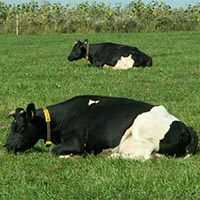
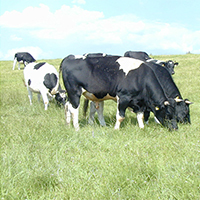
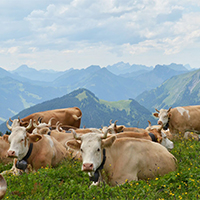
Picture from Swissherdbook
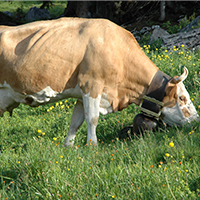
Picture from Swissherdbook.
Breed: Simmental
Project partners
Sven Koenig (UNI-KS, Germany)
Thomasz Sakowski (IGAB and FSK, Poland)
Ton Baars (IGAB and R-Ju, Poland)*
Marija Klopcic (UL, Slovenia)
Beat Bapst (QAG, Switzerland)
Didier Boichard (Idele, France)
Delphine Pinard (Idele, France)
Nicolas Gengler (ULg, Belgium)
Wytze Nauta (WU-FSE, Netherlands)
Egbert Lantinga (WU-FSE, Netherlands)
Oya Akin (TAGEM, Turkey)
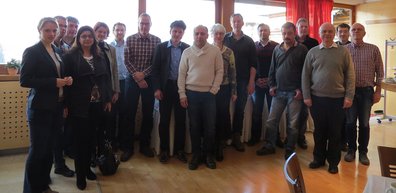
The project 2-ORG-COWS is funded by ERA-Net CORE Organic Plus Funding Bodies partners of the European Union’s FP7 research and innovation programme under the grant agreement No. 618107.
